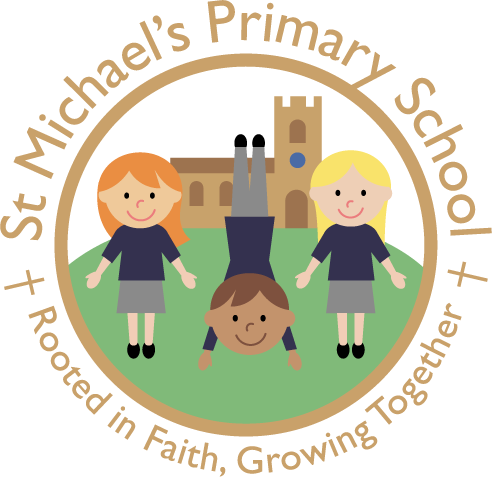Art
Art at St Michael’s CE Primary School
Intent
At St Michael’s, we believe that art connects us to the past, helps us embrace the present, and empowers us to shape the future. Rooted in our Christian values of resilience and aspiration, our Art curriculum provides pupils with the knowledge, skills, and confidence to express themselves through visual language.
We aim for all pupils to:
-
Understand how art reflects and influences our world—culturally, historically and spiritually
-
Explore their ideas and experiences through imaginative and creative work
-
Become confident in a wide range of artistic disciplines including drawing, painting, sculpture, and mixed media
-
Evaluate and analyse artistic work using appropriate visual language
-
Learn about significant artists, designers and craftspeople from a range of cultures, traditions and backgrounds
-
Develop their God-given talents and grow as expressive, reflective individuals
Implementation
Our Art curriculum is shaped by the belief that art is more than technical skill—it is a powerful vehicle for creative thinking, self-expression and emotional literacy. We follow the AccessArt scheme, which supports staff in delivering high-quality, sequenced teaching that promotes deep understanding and inclusive learning for all.
Key features of our Art implementation include:
-
Progression of skills: Pupils build a strong foundation in key disciplines, with learning that develops year-on-year across drawing, painting, sculpture, printmaking, and digital media.
-
Sketchbooks: Central to our approach, sketchbooks are spaces for exploration, experimentation and reflection—where pupils are free to take risks and document their artistic journey.
-
Inspirational artists: Each unit includes the study of diverse artists, designers and craftspeople—not to imitate, but to understand different perspectives, world views and techniques.
-
Balanced knowledge: Our curriculum develops both declarative knowledge (facts, vocabulary, techniques) and experiential knowledge (practical application, critical thinking, self-awareness).
-
Curriculum structure: Art is taught in half-termly blocks, alternating with Design & Technology. Each term has a focused skill, medium, and artist. Over each key stage, all core skills are covered.
-
Early Years Foundation Stage: Artistic development begins through expressive arts and design, where imagination and creativity are nurtured through play, storytelling, and hands-on exploration.
Assessment in Art is ongoing and informal. Without national standards in Primary Art, we focus on formative conversations, observation, and sketchbook progression to assess understanding, intention and outcomes.
Impact
Our Art curriculum equips children to be imaginative, confident and resilient learners who value creativity as part of who they are and how they see the world. We know our pupils are making progress when they:
-
Feel inspired and excited by the work of others and develop a love for art that extends beyond the classroom
-
Express their ideas and emotions creatively, using a wide range of skills and media
-
Reflect meaningfully on their own work and the work of others, using the language of art and design
-
Demonstrate curiosity and courage as they explore new techniques and develop their own artistic voice
-
Understand the contribution of artists, designers and architects across different times and cultures
-
Show clear progression and pride in their sketchbooks and finished pieces
-
Grow in self-confidence, resilience, and perseverance in the face of challenge
-
Flourish spiritually and creatively, in line with our school’s vision of nurturing agents of change who thrive academically and spiritually
